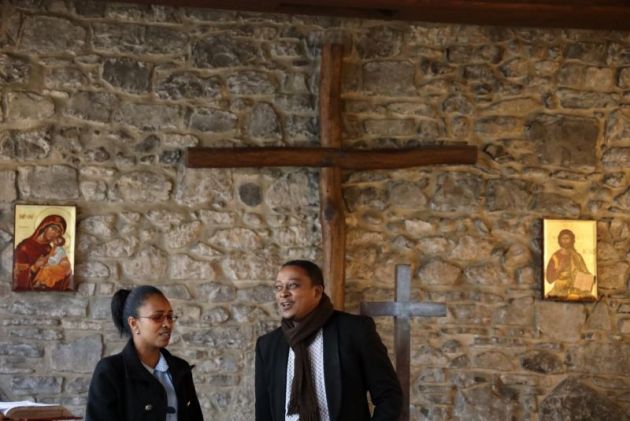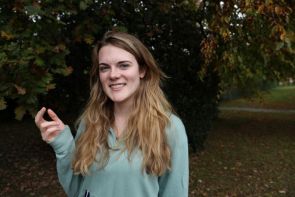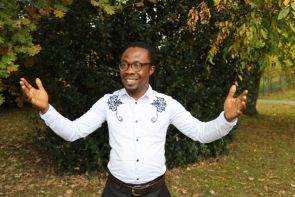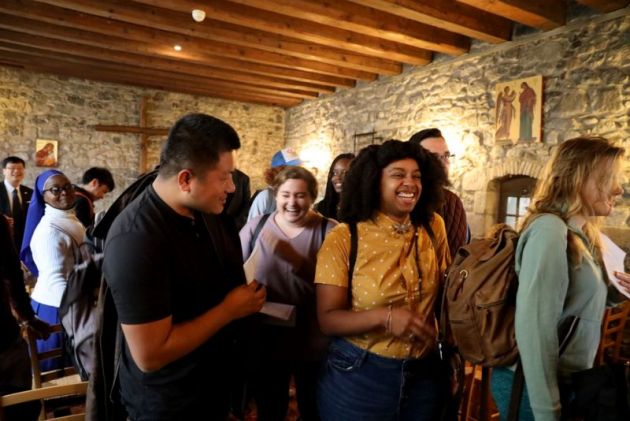Its the students who make Switzerland's Bossey so special, not the courses

Any prospective student who intends to study at the World Council of Churches Ecumenical Institute at Château de Bossey, in its picturesque setting near Geneva, Switzerland soon learns it is an exceptional place.
Talk to alumni, staff and those currently studying; they all enthuse about how Bossey shaped their formation, consciousness and awareness of the world around them as they engage in globally unique studies overlooked by snow-capped mountains and Lake Geneva.
Virtually to the person they will tell you it is not just stimulating coursework or the setting that impacts them; it is the interaction with others from different countries, church traditions, and even on occasion from other faiths, with a diverse faculty to offer guidance.
Lawrence Iwuamadi is a Nigerian priest who holds a PhD in Biblical Theology from the Pontifical Gregorian University of Rome.
He has served as the academic dean at Bossey since January 2018 and always has a twinkle in his eye when he talks of his beloved Institute and notes that what is essential each year is not simply the actual course work.
The Ecumenical Institute draws students and researchers from around the world for residential academic study.
They focus on pressing issues through studies in ecumenical theology, missiology, social ethics and ecumenical hermeneutics, and a new batch of prospective students are currently getting ready to apply for next year.
STUDENT BODY MAKES THE DIFFERENCE
"What makes the difference at Bossey is, who constitute the students. And I think this year is different in a unique way because, for the first time in a long while, we have students coming from Western Europe," Iwuamadi reflected.
In the recent past, the students tended to come from mainly the global South.
Yet among the 32 students who started the 2019-2020 academic year last September, 19 countries are represented.
These include China, Cuba, Georgia, India, Indonesia, Italy, Kenya, Korea, Madagascar, Nigeria, Romania, Serbia, Sierra Leone, Sri Lanka, Sweden, Switzerland, Thailand, Ukraine, and the United States of America.
"At Bossey, we give the academic content, but I would say that normally the core of our formation comes from what happens outside the classroom," said Iwuamadi.
"That is students living together, praying together, eating together, sharing a life in common. So lived ecumenism is not simply an academic activity. And the uniqueness of this year is the distinctiveness of the students."

Rachel Callender of the United Methodist Church in the United States from the state of New Jersey "was raised in a long line of United Methodists. I'm said to be a 13th ordained Methodist in a direct line to my family," she said.
'NOT TRYING TO MAKE ONE DENOMINATION'
"Here at Bossey; they are not trying to make everyone one Christian denomination. I'm a Methodist and proud of being United Methodist whilst also respecting these other denominations, not just tolerating, but respecting," Callender added.
Jin Liu works in the office relations department of the China Christian Council in Shanghai, which serves Protestant churches, and was drawn to the CAS course at Bossey after working as a steward at the WCC Central Committee in 2018.
"In ecumenism, we are talking about church unity," she noted. "I feel strongly about it as there can be conflict between churches. Much of the time, it is because of misunderstandings between each other. So, ecumenism is important for me so that we could bring one another together; so, we can talk to each other?"

Rev. Joshua Koroma comes from the other side of the world, where he is a member of the Kingdom Life Pentecostal Church in Sierra Leone but is just as delighted as Liu to be at Bossey.
OPPORTUNITY FOR SIERRA LEONE
"I'm very happy. And thanks, to the WCC and the Bossey community that has given this opportunity, not only to me, to the whole Sierra Leone nation," Koroma said.
He continued, "In terms of the religious aspect, we are open because as you know, as Pentecostals, we believe in prayers. And of course, we know that the course at Bossey helps students overcome prejudices that they might have, you know, like, say, between Orthodox and Protestant and Catholic and Pentecostal or, if there is some hostility to ecumenism in your church."
Another two students come from Switzerland and its neighbour, Italy, showing a keen interest in studying further.
Emma Van Dorp, a member of the Protestant Church of Geneva, has a penchant for studying. She has already completed a master's degree in reformed theology and has now enrolled in the master's course in ecumenism at Bossey, which the University of Geneva awards. Later, she hopes to complete a PhD before becoming a pastor.
'PROVIDING SPACE FOR ONE ANOTHER'
"I have been writing about dialogue and how we can provide this space for one another and how we can learn from other Christian traditions. And because in Switzerland we have also migration coming and I've been talking about how we can receive from these churches, so this course is important," said Von Dorp.
The part she much looks forward to is living with the other students at Bossey and learning from them.
Simone de Giuseppe from the Baptist Church in Italy first studied at philosophy in Turin, and then went on to do theology at the Waldensian Faculty of Rome.
"The main reason I want to study here is for the experience with other people, from other countries and other church traditions. For example, the Orthodox Church, I'm so fascinated to learn more about the Orthodox Church," he said.
